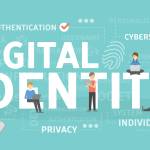United Kingdom
The MyIdentity scheme is moving closer to enhancing identification (ID) and anti-money laundering (AML) checks in new home sales for all parties following the conclusion of a three-month consultation period, its founder has said.
The scheme aims to provide a set of standards specific to the property industry to allow parties to work together and share information quickly and securely meanwhile reducing the risk of errors.
The new process removes the requirement for a customer to show their ID, and other details, separately to a number of different parties through their purchase journey and having to upload different information onto different systems. Customers will instead have to prove their ID just once in the home buying process.
United States
Prove Identity has announced a partnership with cryptocurrency exchange Bitstamp to strengthen its security and compliance controls and expedite its user onboarding process.
Prove will enable Bitstamp US users “to streamline account openings and registrations while meeting the highest levels of compliance and security through its Pre-Fill onboarding solution.”
Powered by the Prove Identity Network (PIN), Prove expedites “the digital onboarding process by pre-populating application forms with verified identity information tied to a phone number, while mitigating fraud through its patented, industry-leading identity framework.”
Global
Mitek is bringing its digital ID verification and Know Your Customer experience to the Open Identity Exchange (OIX) as the movement’s latest member.
OIX said Mitek is coming on board with its perspective on the trends towards adoption of digital identity technology and to help advance the OIX’s mission of ensuring that digital ID works well for everyone.
The OIX is a global group that enables actors in the digital ID space to easily connect and collaborate, developing the guidance needed for interoperable and trusted digital identities.
Estonia
Cybernetica Senior Researcher Peeter Laud has won a research grant for 769,600 Euros (approximately US$812,000) from the Estonian Research Council to work on points of failure in digital identity proofs.
Laud will lead a project made up of three areas, researching single points of failure in digital identity proofs and how they can be addressed with distributed identity and zero-knowledge proofs (ZKP), according to the announcement.
The three directions of the research project are an exploration of how the issuance of digital evidence can be made as private as possible through cryptography and ZKP, post-quantum secure protocols, and how digital identity management can take advantage of how identity is formed from a collection of attributes.
Global
If you liked this content…
Following the recent acquisition of Customer Identity and Access Management (CIAM) specialist OneWelcome, Thales is bringing the OneWelcome Identity Platform to enterprises globally, enabling them to “orchestrate frictionless, secure and trusted digital journeys for their customers.” The launch of the latest US Zone gives enterprises expanded regional delivery capabilities and freedom to address sovereignty needs. Additional zones will be added in the near future.
Europe
The European Parliament on Thursday (16 March) adopted the mandate to enter inter-institutional negotiations for the European Digital Identity, with the first political meeting planned for next week.
The European Digital Identity is designed to provide the legal framework for establishing a system of national digital wallets interoperable across the EU where citizens can access all documents, from birth certificates to driving licensces.
The intention is to create a European digital wallet that could compete with the identification systems provided by Big Tech companies like Google and Apple.
Thursday’s plenary vote was just a formality, as the leading parliamentary committee adopted the report in February with a broad majority.
United Kingdom
Mastercard has been certified under the United Kingdom’s Digital Identity and Attributes Trust Framework (DIATF) as an identity provider.
Mastercard’s ID app, which is available at the major mobile app stores, gives consumers more choice in how they prove their identity whether they’re starting a new job, making a purchase, renting a flat, or applying to university.
The service uses Mastercard’s global network and data privacy practices, keeping consumers in control of their data, so people can choose what information to provide, to whom, and when.
Certified organisations like Mastercard can work with each other, ensuring that digital attributes and identities are consistent and trusted. Providers conduct annual assessments to verify they meet DIATF requirements.
Europe, Canada, Netherlands
IDEMIA has been selected to provide the digital identity and biometric technology in a “Digital Travel Credential” (DTC) being piloted by the European Commission, the governments of Canada and the Netherlands, and other stakeholders. The project will enable participating travellers to use a mobile app to create a digital travel token based on a contactless scan of their passport’s embedded chip. The app will ask the user to upload a selfie photo, with facial recognition comparing it to the passport data. From there, they will be able to take advantage of expedited, biometric border screening and boarding at the Schiphol airport in Amsterdam.
United States
Identity solutions company HID has signed a memorandum of understanding (MoU) with iPassport to launch an identity verification solution for the transportation industry.
The collaboration between HID and iPassport, a provider of solutions that enable organisations to implement digital identity technologies, is set to bring forth an AI-powered passenger identity verification technology that aims to improve the travel experience and optimise airport efficiencies.





